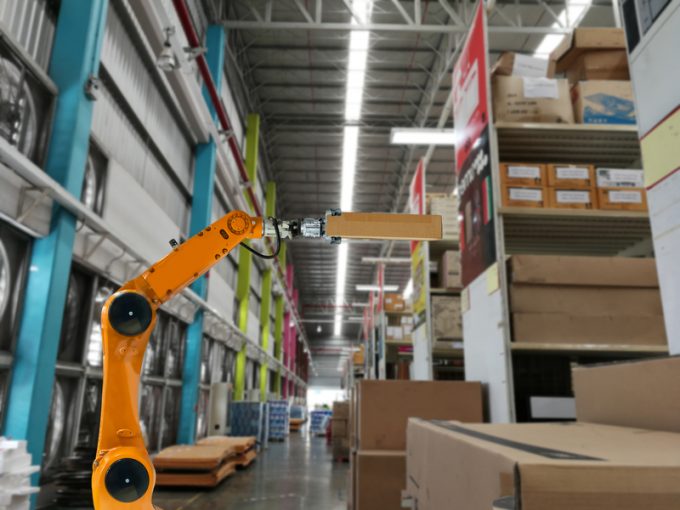US warehouse lease rates climb even as demand for space slows
Warehousing landlords are poised to make more money this year without adding to their footprint, ...
ZIM: SURGING ON TAKEOVER TALKEXPD: CASHING INCHRW: INSIDER SALEFWRD: TRADING UPDATETSLA: POWERING THE UKUPS: DRIVER DEAL EXTENSIONMAERSK: BEARS UPPING TARGETSCHRW: NEW HIGHS AND PAYOUT CONFIRMEDBA: GREEN LIGHTMAERSK: ONE UPGRADE AFTER ANOTHER FDX: STEADY YIELDCAT: DOWNSIDE RISKMAERSK: SOARINGMAERSK: CONGESTION RISK MAERSK: 'ACCELERATION OF GLOBALISATION'
ZIM: SURGING ON TAKEOVER TALKEXPD: CASHING INCHRW: INSIDER SALEFWRD: TRADING UPDATETSLA: POWERING THE UKUPS: DRIVER DEAL EXTENSIONMAERSK: BEARS UPPING TARGETSCHRW: NEW HIGHS AND PAYOUT CONFIRMEDBA: GREEN LIGHTMAERSK: ONE UPGRADE AFTER ANOTHER FDX: STEADY YIELDCAT: DOWNSIDE RISKMAERSK: SOARINGMAERSK: CONGESTION RISK MAERSK: 'ACCELERATION OF GLOBALISATION'

The economics of automating warehouse operations are becoming increasingly plain – in the US, the minimum wage for a worker is $15 an hour, while leasing a robot (as opposed to purchasing one for around $100,000) comes in at around $8 an hour.
This feature from Wired explains how the pandemic-induced labour shortages in production and distribution facilities led to the emergence of a new breed of leasing companies building up fleets of robots and renting them out – a particular attraction for smaller operators nervous of the large capex requirements of directly investing in automation. “The robot-as-employee approach could help automation spread into smaller businesses more rapidly by changing the economics. Companies such as Formic see an opportunity to build large businesses by serving many small firms. Many are mining the data they collect to help refine their products and improve customers’ operations.”



Comment on this article